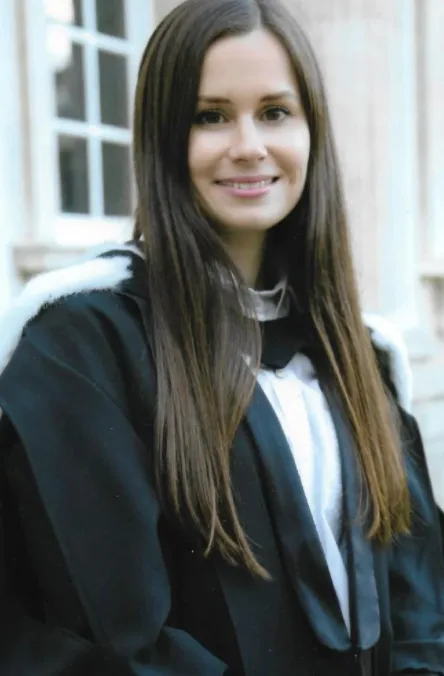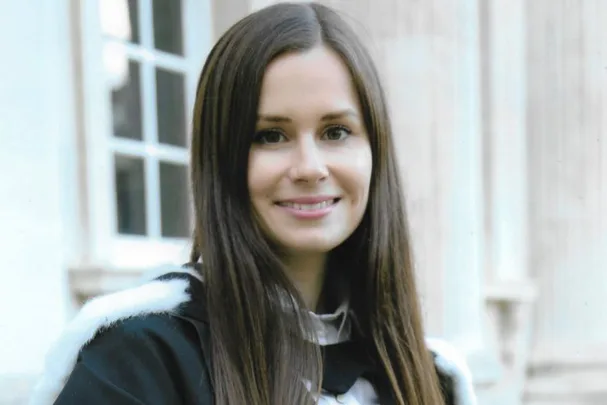When Melbourne academic Kylie Moore-Gilbert visited Iran in August 2018, her visit quickly descended into hell when she was accused of being a spy and jailed for a decade. Two years on, her friends and family are desperately fighting for her release, reports Jacqui Lang.
Kylie Moore-Gilbert had been excited about the course she was taking in the ancient city of Qom, a city near Tehran. The 30-year-old academic, a lecturer in Islamic Studies at the University of Melbourne, was feted by colleagues for her academic brilliance and gentle, warm personality. Regarded as a star on the rise in academic circles, she knew the trip would add valuable insight into her knowledge of the Middle East.
But while preparing to leave Tehran following her three-week stay, Kylie was suddenly taken aside, arrested and interrogated at Imam Khomeini International Airport. The terrified young woman was then accused of being a spy.
After her course, she’d opted to spend a few extra days in Qom to carry out some research interviews, and it’s thought that a fellow academic reported her as “suspicious” to authorities. “Someone in her group must have reported her to the authorities,” New York-based human rights activist Hadi Ghaemi, from the Centre for Human Rights in Iran, tells marie claire. “They would have been following her around, watching who she spoke to, and mounting a case against her.”
Kylie was convicted in a closed court and found guilty before being handed a 10-year sentence. She was jailed in Tehran’s Evin Prison, into the severely restrictive Ward 2A, controlled by the intelligence organisation of the Islamic Revolutionary Guard Corps (IRGC.)
Here, she was mostly kept in solitary confinement in a tiny cell with no bed or window where she reportedly had to sleep on the floor next to a toilet. Reports from families of other prisoners suggest she was given drugs against her will in order to keep her compliant.
Yet her plight worsened last month when she was transferred to the notorious Qarchak prison, south of Tehran. Overcrowded and isolated, Qarchak has a reputation for being one of the most hostile prisons in the country. “Here you have to watch out for everyone, both guards and fellow inmates,” says Hadi Ghaemi.

Some of Kylie’s letters have been smuggled out of jail, offering a frightening glimpse into her ordeal. She refers to plans for a hunger strike, of books being confiscated, of the pitiful lack of funds to buy personal items, “I never have enough money in my account, given my embassy never transfer me enough”.
She also expresses her ongoing frustration at being accused of being a spy.
“I am not a spy. I have never been a spy and I have no interest to work for a spying organisation in any country,” she writes in one letter. “In addition to all the pain I have endured here, I feel like I am abandoned and forgotten,” she says in another.
“Kylie is an academic researcher; she’s not a spy,” says friend and colleague, Melbourne academic Dara Conduit, who completed her PHD in Middle East politics in 2017, at the same time as Kylie. The pair celebrated with a memorable lunch with other colleagues. “She has such a brilliant mind and immediately got a job at Melbourne University, commencing 2018. That just doesn’t happen to most people that quickly. She’s not only extremely clever, she’s also very polite, considerate and highly respectful toward the subjects of her research. She was arrested because she was an Australian, seen as someone valuable to the Iranian regime for ‘hostage diplomacy’ purposes.”
Dara is part of an advocacy group formed by Kylie’s colleagues and friends to publicly push for her release. Frustrated by the Australian government’s inability to act, they have set up FreeKylie.net, urging supporters to contact politicians and media organisations.
“This could happen to any Australian – whether you’re a researcher or a holiday maker,” says Dara. “Kylie’s situation raises important questions; what support can any of us expect from our Government, if something goes so wrong when we travel?”
She says the group is extremely worried about Kylie’s general health as well as her psychological condition.
Australia’s Department Of Foreign Affairs and Trade (DFAT) reported that the Australian ambassador to Iran, Lyndall Sachs, visited Kylie in jail on August 2.
“Dr Moore-Gilbert is well and has access to food, medical supplies and books,” DFAT says in a statement. “We will continue to seek regular consular access to Dr Moore-Gilbert.” It adds, “We believe that the best chance of resolving Dr Moore-Gilbert’s case lies through the diplomatic path and not through the media.”
But Reza Khandran, husband of jailed human rights lawyer Nasrin Sotoudah, tells a different story. “I spoke to Kylie on the phone two days after she was taken to Qarchak prison,” he tells marie claire. “She said she was not well and was upset and depressed. She said she had been brought there as punishment. A few days after the news broke, the Australian ambassador and Kylie’s lawyer met with her in Qarchak prison. They said she was fine and had everything – while Kylie told me she is very upset, depressed and cannot eat anything. I recorded the conversation.”
Hadi Ghaemi disagrees that the Australian government’s subtle stance is best for Kylie. “Your government has had two years to do something ‘quietly and diplomatically’ for Kylie and it has not been successful,” he says. “They haven’t managed to get her out. Your government says she is well? How do you define ‘well’? She is breathing, yes, but that doesn’t mean she is well.” He adds: “I’ve been surprised that the Australian media has paid so little attention to her case for so long. The best thing everyone can do for her is to speak up about this.”
Asked what more the government could have done, he replies: “So much more. I’ve followed these kinds of cases for years involving prisoners. Your government has had multiple chances. Much more pressure should have been applied by Australia to countries like South Korea and Japan, a collective move to push to get Kylie out. Iran reacts to this kind of pressure; if multiple countries apply pressure, you get results. This has not happened, clearly. Australia has failed Kylie.”
Given Kylie’s dual British-Australian citizenship, Hadi Ghaemi maintains both governments should have worked together more closely to action her release.
Meanwhile, media coverage is crucial, he says. “Just keep talking about her. If occasionally she can get access to someone’s phone and see the internet, to see her name there and know that people are thinking about her and that they care about her and are trying to free her, that’s incredibly important. It will help her immensely. When you’re locked away, you need to know people are out there thinking of you.”
Kylie’s supporters are hoping at the very least she gets transferred back to Evin Prison, to an area holding other non-violent prisoners. “I very much hope that Kylie will return to Evin Prison – not to a security detention centre, but to a public ward, where my wife Nasrin and the political prisoners are,” says Reza Khandran.
“I hope Kylie knows a lot of people are thinking of her all the time,” adds Dara. “We won’t give up pushing for her release until she’s back home again.”
Sign the Free Dr Kylie Moore-Gilbert petition here.










